Art is a weapon with which artist fights for the oppressed, says Yemeni cartoonist
By Syed Zafar Mehdi
His exquisite artistic work speaks volumes about his politics and the way he feels about oppression unleashed on people in the region by Western hegemons and the Zionist regime.
In the past few weeks, his cartoons, shared and circulated widely on social media platforms, have perfectly captured the essence of what’s unfolding in the besieged Gaza Strip and the region.
Kamal Sharaf, a veteran cartoonist from Yemen, is unapologetic about his political beliefs and his unflinching support for the resistance, including in Palestine, which is clearly reflected in his works.
Through his art, Sharaf makes strong political statements, hails the strength and bravery of ordinary Palestinians in the face of Israeli aggression and also calls out the global community over its cowardly and criminal silence.
In one of his viral cartoons published last week, he portrayed an Israeli-American hand holding a big knife that cuts open a Palestinian child on a book titled ‘International Law.’
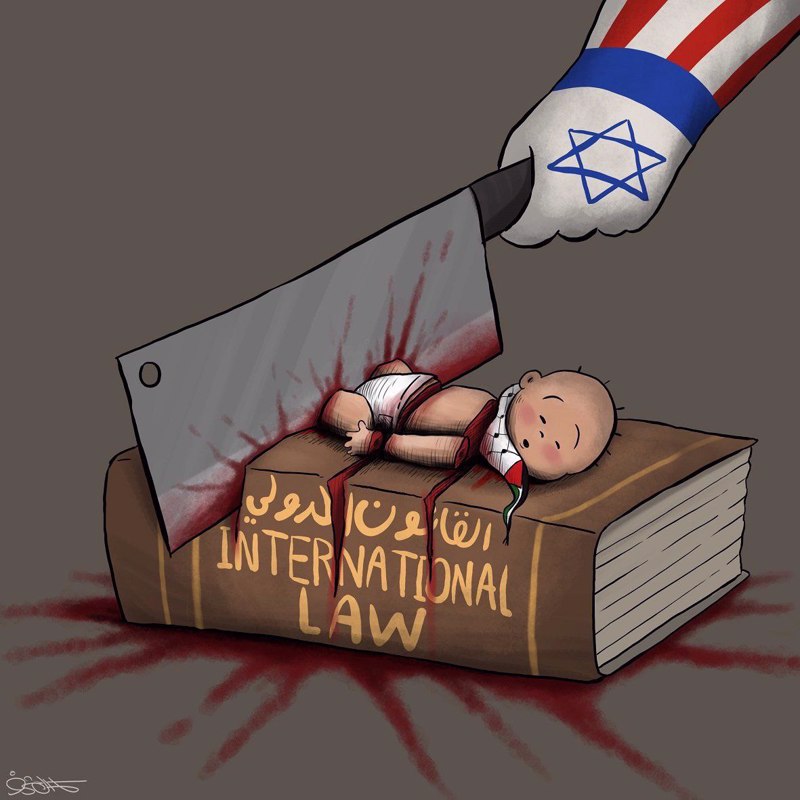
In another cartoon, he sketched an American-Israeli hand sliced open by a Yemeni dagger (jambiya) as it attempted to crush a Palestinian child in Gaza, referring to a series of drone attacks from Yemen in recent weeks in solidarity with the Palestinian resistance.
In a conversation with the Press TV website, Sharaf said he was “inspired” by the great Palestinian-Arab cartoonist Naji Al-Ali, arguably the most legendary cartoonist and satirist of the Arab world.
Ali’s art was mainly drawn from his own experiences as a Palestinian refugee, highlighting the struggles he faced and the occupation of his land by the Zionist regime with the help of the West.
“He was strong, bold, and a true fighter with his art...and he left a great impact on the consciousness of millions of Arabs, including me,” the Yemeni cartoonist said.
“It was the first compass that made me see that caricature is a weapon with which the artist fights for the oppressed and for the truth without fear,” he hastened to add.
Ali was killed in London in 1987 at the age of 50. His assassin still remains at large.
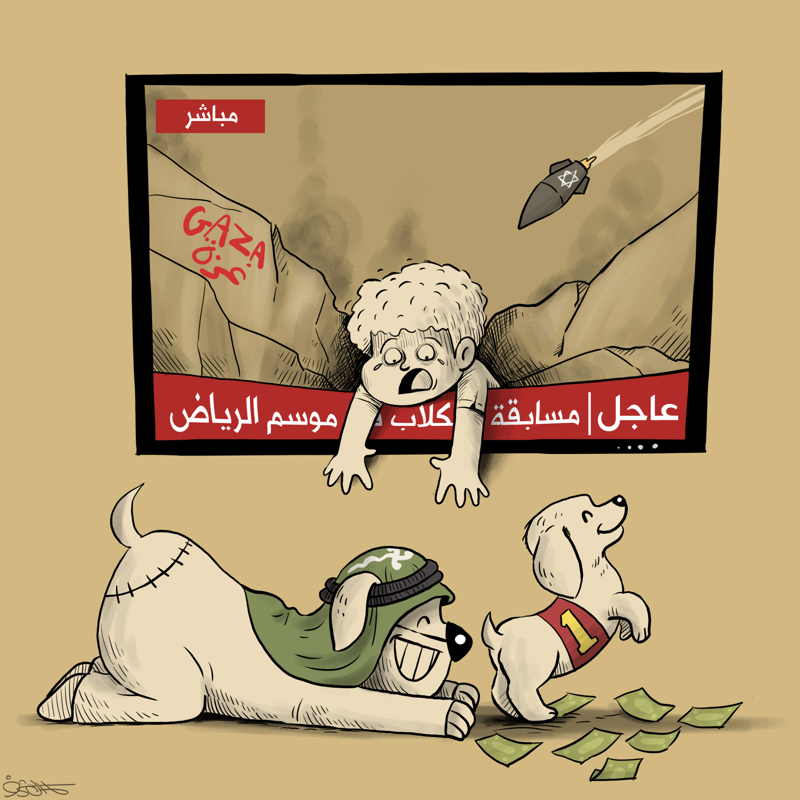
Sharaf said the recent developments in the besieged Gaza Strip, following the Israeli regime’s indiscriminate aggression, created in him a “great revolution against injustice.”
He could relate to what the Gazans were suffering because he has lived the same in Yemen.
“It brought back memories of all the bloody events carried out by the Zionist criminals from the beginning in Palestine. I felt that I had to fight with the art I possessed and fire my bullets at their lies to reveal their truth and the truth of the brave resistance fighters and the condition of the innocents in Gaza,” the Yemeni cartoonist told the Press TV website.
“This art, like a bullet, reaches its goal quickly with the simplest of tricks. A false image created by the media that cost millions...and I hope I succeeded in that.”
Most of his cartoons in recent weeks have been about the Israeli aggression in Gaza, the complicity of the US and other Western powers, the inefficacy of international organizations and the indomitable resistance of Palestinians against the occupiers.
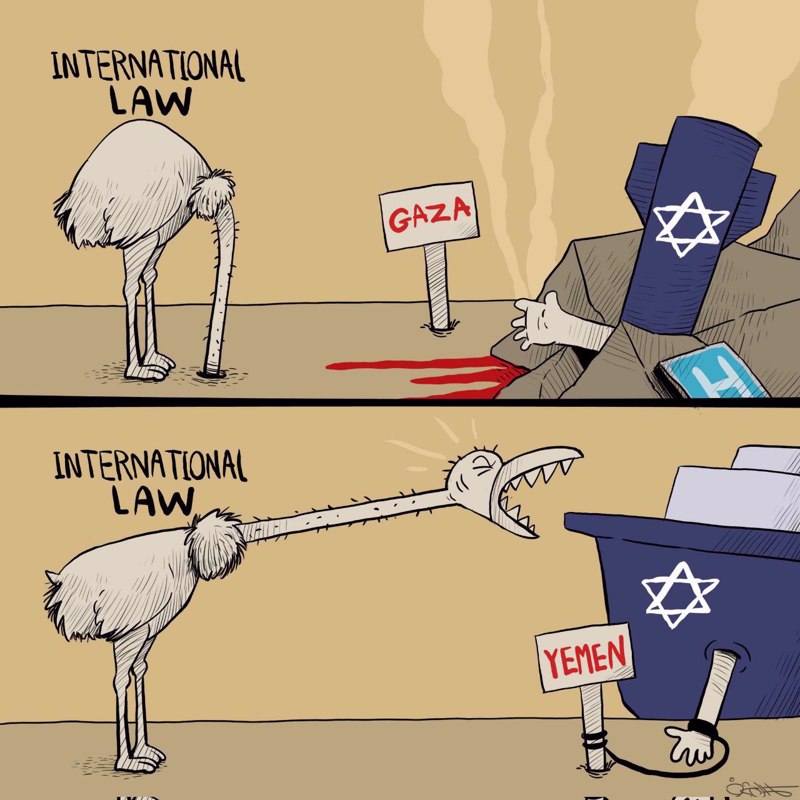
He also drew cartoons on the seizure of an Israeli ship in the Red Sea by the Ansarallah resistance movement last week, which shocked the regime and its backers in the West.
“It was a historic event and a moment of pride as a Yemeni, a moment that God made with an honest and wise man, Abdul-Malik Badruldeen al-Houthi (the leader of Ansarallah),” Sharaf noted.
He lavished praise on the Ansarallah leader, saying he has “restored Yemen’s true honor with honest men and true mujahideen who accomplished the impossible task.”
“How wonderful this scene was (seizure of the ship), and I presented several works portraying this historical moment, in which I talked about the sword of Yemen (the Red Sea), which represents a powerful force that waited for an honest, courageous hand to grab it to make history,” Sharaf said.
Explaining his art and the way he expresses his politics artistically, the Yemeni cartoonist said the art “depends on simplicity,” but behind that lies “great intellectual, philosophical and cognitive work.”
"According to an artist’s craftsmanship and the extent of the coherence and strength of his human, political and cultural opinion, his message cuts across language and cultural differences to leave an impact and create a point of light for seeing the truth,” he asserted.
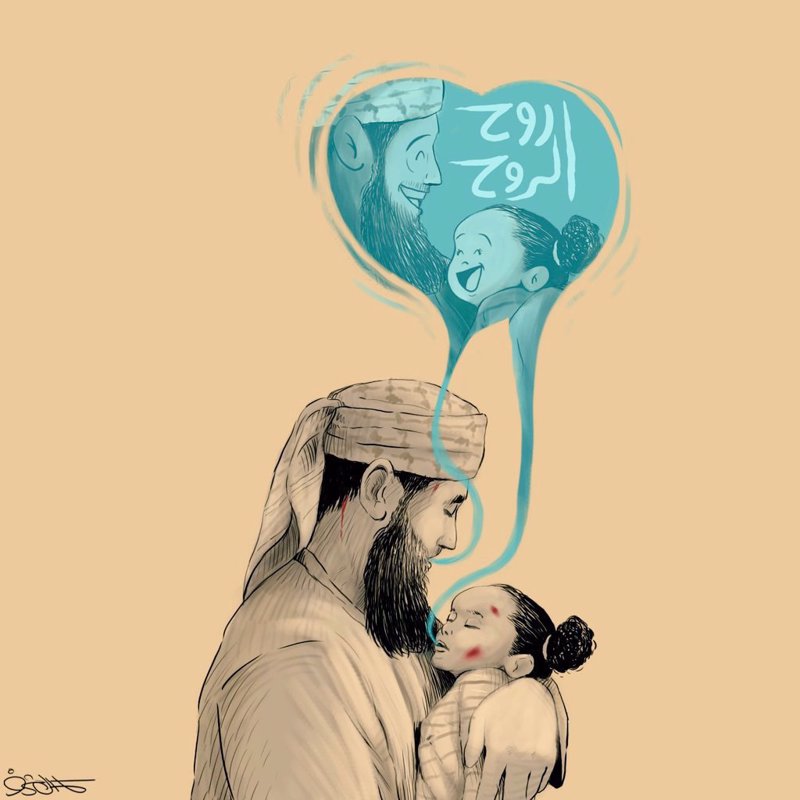
The strong and impactful art with an artist’s vision, Sharaf said, “can reach all segments of society and anywhere in the world with one shot and easily,” which is evident from social media platforms.
Like many political cartoonists, however, Sharaf has also faced his share of struggles, including being imprisoned and attacked for his work.
In 2010, during the former Saudi-loyal government in Yemen, he was subjected to enforced disappearance for his work critical of the regime, which sparked protests across the world at the time.
Months later, he was attacked by unidentified men in the Yemeni capital Sana’a after an interview in which he emphasized that cartoonists should be “fierce critics” of the government and its corruption.
“My detention lasted for two and a half months, and I was released after writing a pledge not to portray the (then) president or talk about his policies,” Sharaf told the Press TV website.
“But it was an important experience in my life that made me more aware of who I am.”
VIDEO | Italians call on Rome to break off all ties with Israel
VIDEO | Activists gather outside UK arms fair complicit in Gaza genocide
VIDEO | Russian, Palestinian Authority presidents discuss Gaza
VIDEO | Beirut gathering: Lebanese figures back Iranian leadership
Israeli tank fires on Lebanese army during joint UN mission in south Lebanon: Report
Iran certain to deliver decisive response to Trump’s threats: Senior commander
Netanyahu skipped Davos amid arrest fears: Reports
VIDEO | West’s support for terror in Iran


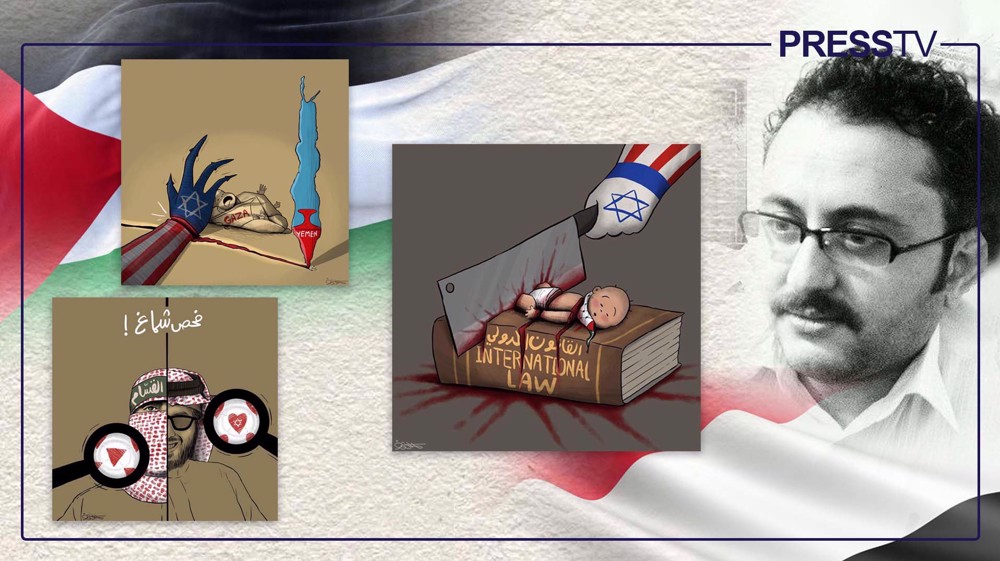
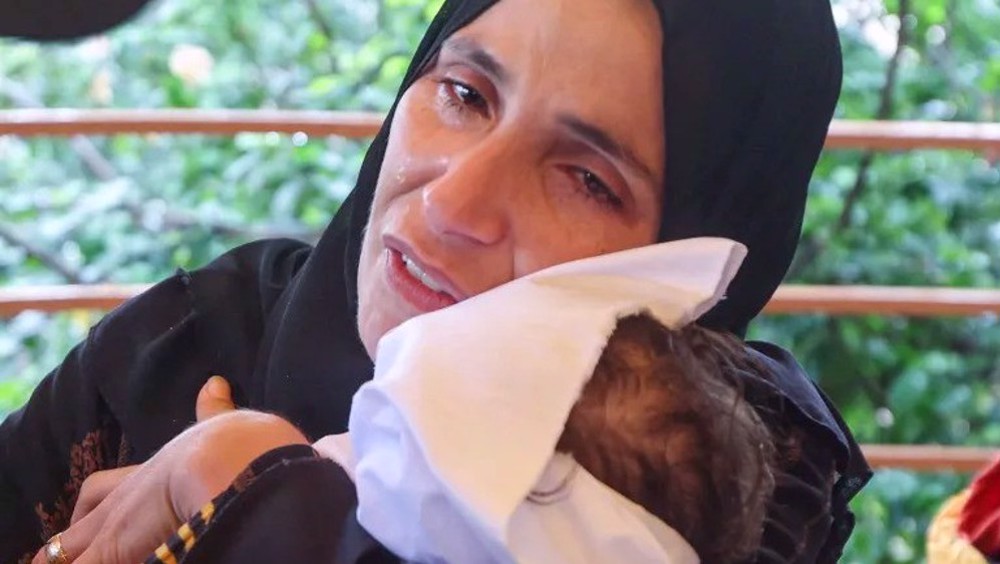
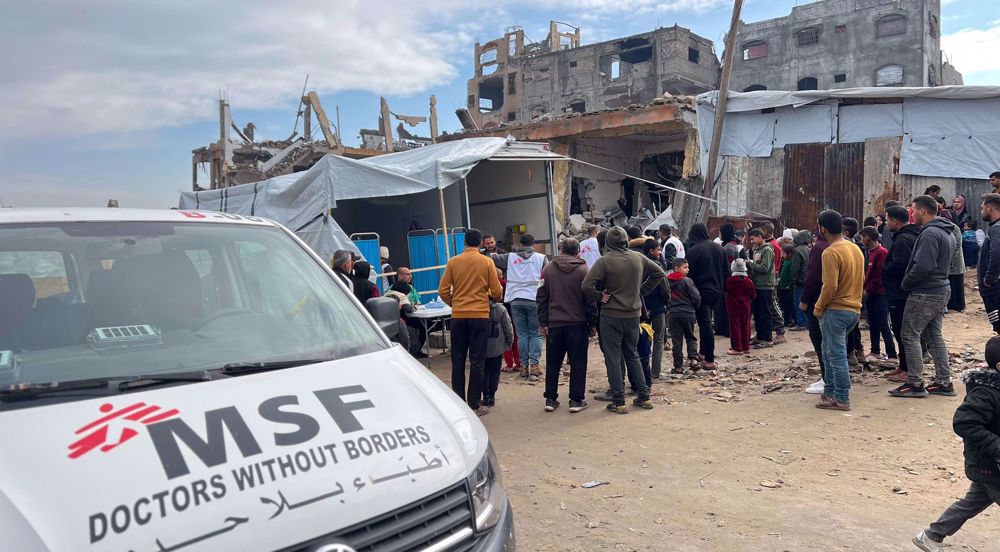
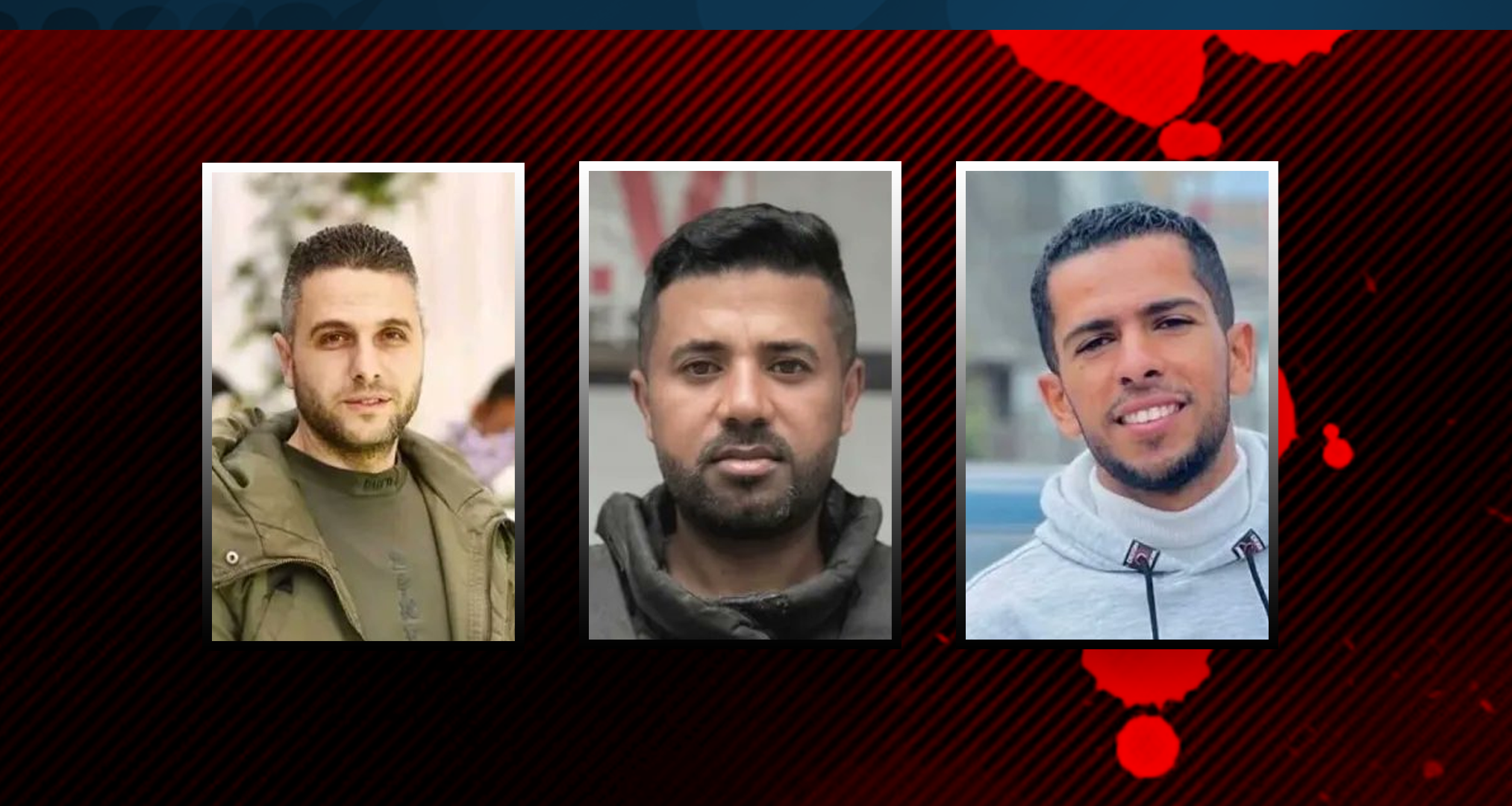



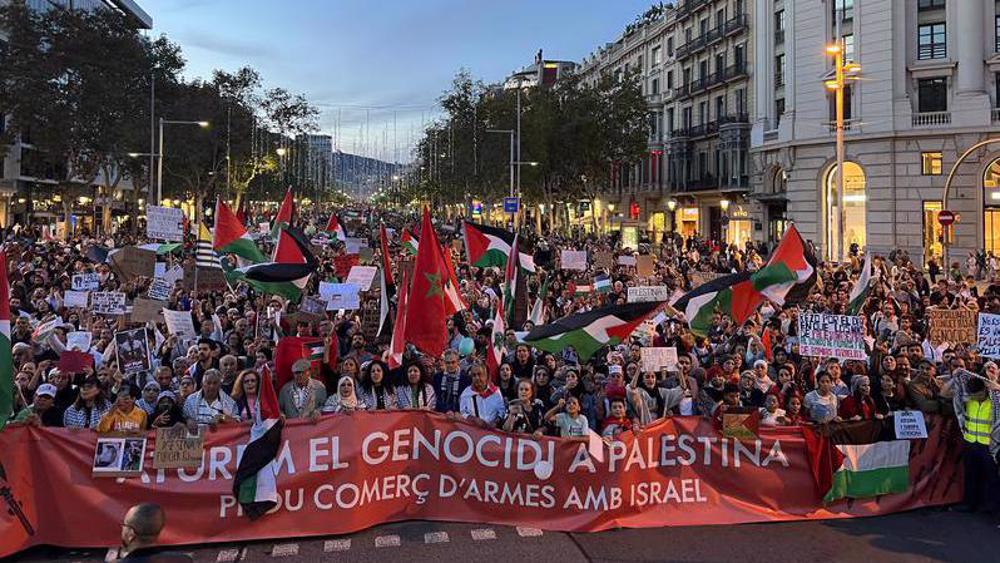
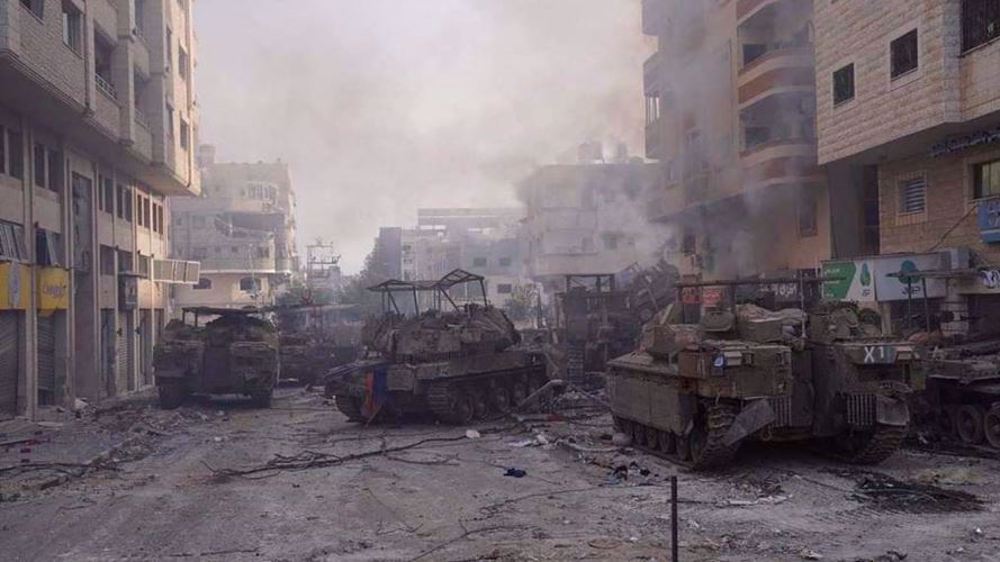
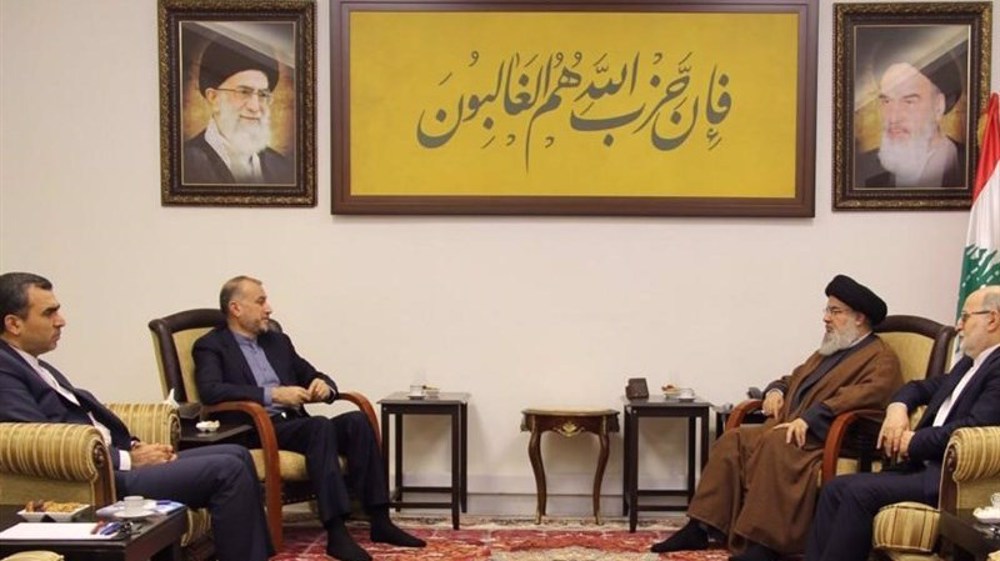
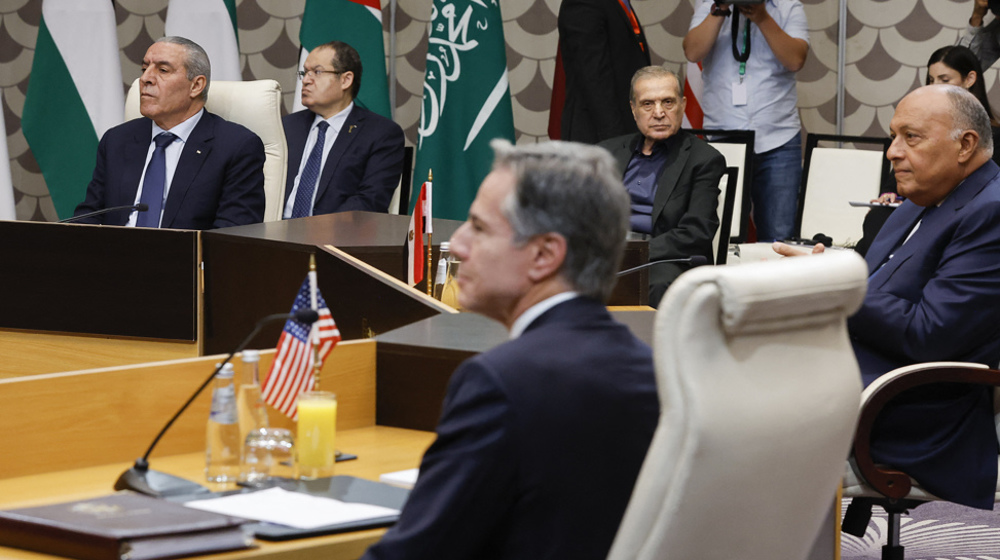


 This makes it easy to access the Press TV website
This makes it easy to access the Press TV website